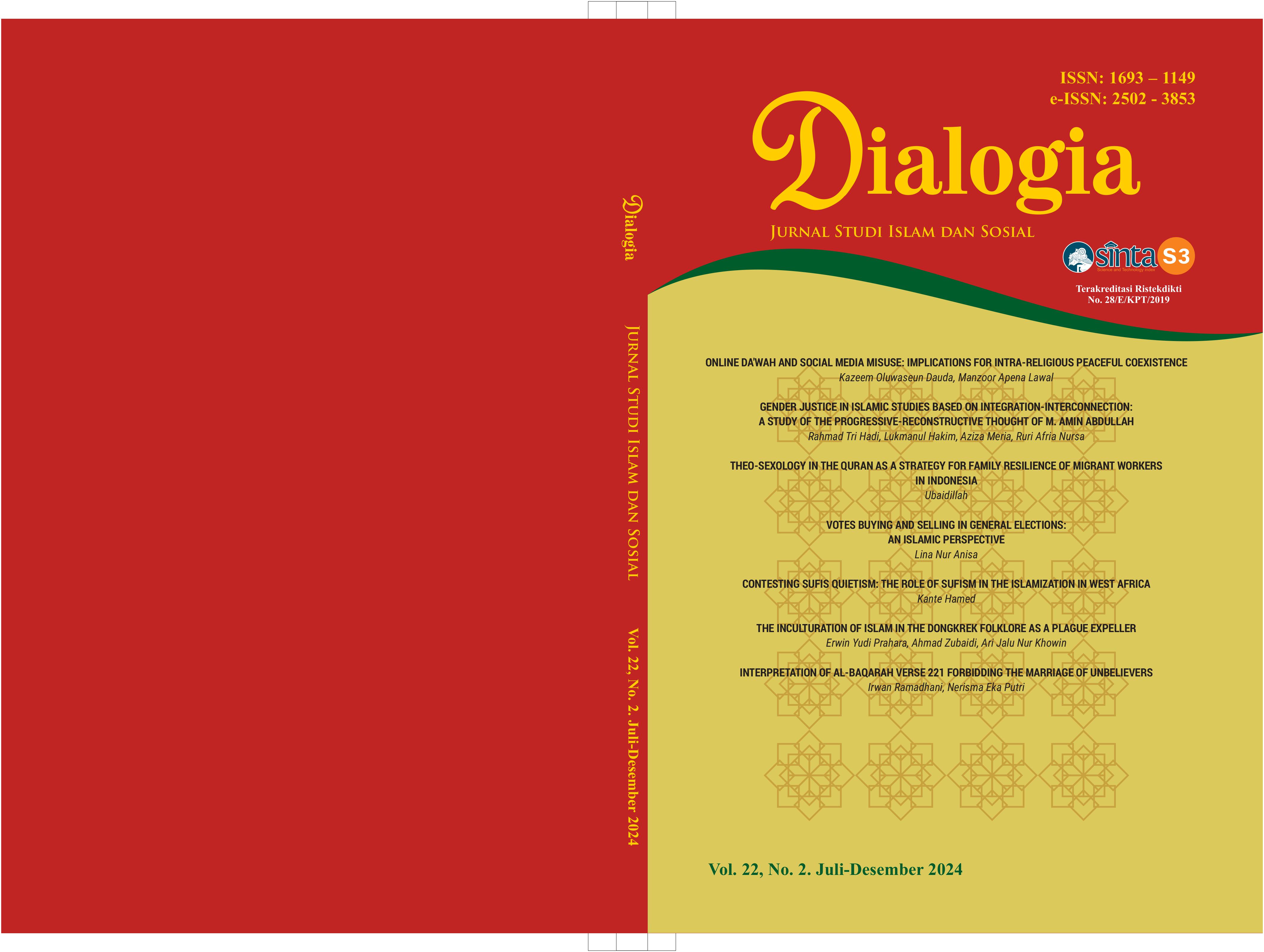Theo-Sexology in The Quran as A Strategy for Family Resilience of Migrant Workers in Indonesia
DOI:
https://doi.org/10.21154/dialogia.v22i2.8780Abstract
Sexual violence as a crime against humanity in the resilience of migrant workers' families is caused by the lack of cognitive and ethical abilities of basic sexual orientation in religion. The research seeks to formulate the ethical values of preventive sexual education in the study of the Qur'an as a guide for sexual education in the family. The literature review is analyzed descriptively through the study of Toshihiko Isutzu's thematic structural interpretation where the data is analyzed using the family resilience theory. As a result, first, the concept of family resilience in the Qur'an is oriented to three types, namely zurriyyatan muslimatan, zurriyatan thayyiba, and zurriyyat hafidza with the characteristics of educational values. Second, preventive sex is shown in conceptual terms that are not less than 6 themes, such as al Harsu, al Rafas, al Nikah, al Zaujiyyah, al Bid'u, and al Farju. As the basis for the value of sexual education in early childhood, adolescence, and adulthood. Third, the value of sexual education as a family resilience strategy provides three sexological paradigms: physiological, psychological, social, humanism, ritual, and spiritual. Through this paradigm, it is expected to suppress acts of violence and orientation. Deviant sexual behavior, especially for families of migrant workers.
Downloads
Downloads
Published
Issue
Section
License
Copyright (c) 2024 Ubaidillah Hasan

This work is licensed under a Creative Commons Attribution-NonCommercial-ShareAlike 4.0 International License.
Dialogia : Jurnal Studi Islam dan Sosial allow the author(s) to hold the copyright without restrictions and allow the author(s) to retain publishing rights without restrictions, also the owner of the commercial rights to the article is the author.










